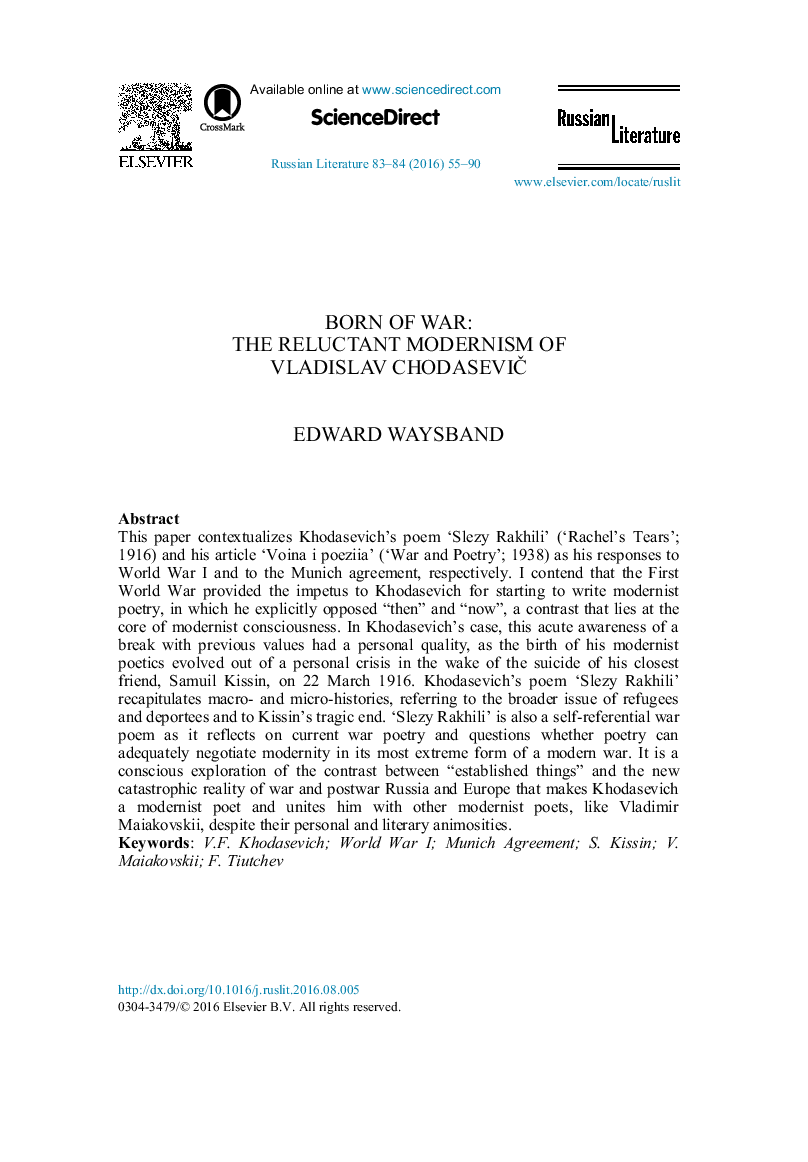| Article ID | Journal | Published Year | Pages | File Type |
|---|---|---|---|---|
| 1103741 | Russian Literature | 2016 | 36 Pages |
This paper contextualizes Khodasevich's poem ‘Slezy Rakhili’ (‘Rachel's Tears’; 1916) and his article ‘Voina i poeziia’ (‘War and Poetry’; 1938) as his responses to World War I and to the Munich agreement, respectively. I contend that the First World War provided the impetus to Khodasevich for starting to write modernist poetry, in which he explicitly opposed “then” and “now”, a contrast that lies at the core of modernist consciousness. In Khodasevich's case, this acute awareness of a break with previous values had a personal quality, as the birth of his modernist poetics evolved out of a personal crisis in the wake of the suicide of his closest friend, Samuil Kissin, on 22 March 1916. Khodasevich's poem ‘Slezy Rakhili’ recapitulates macro- and micro-histories, referring to the broader issue of refugees and deportees and to Kissin's tragic end. ‘Slezy Rakhili’ is also a self-referential war poem as it reflects on current war poetry and questions whether poetry can adequately negotiate modernity in its most extreme form of a modern war. It is a conscious exploration of the contrast between “established things” and the new catastrophic reality of war and postwar Russia and Europe that makes Khodasevich a modernist poet and unites him with other modernist poets, like Vladimir Maiakovskii, despite their personal and literary animosities.
